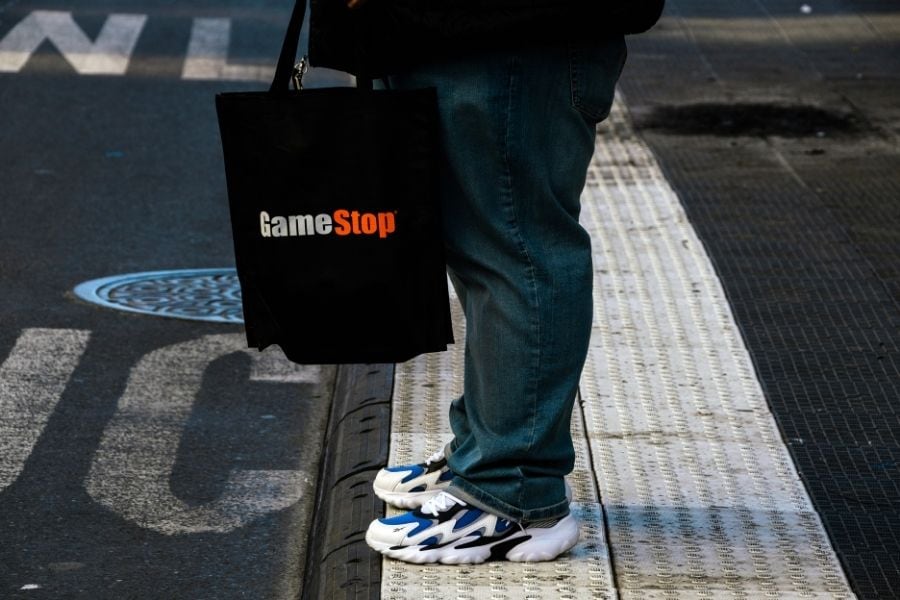
Trading curbs reverse GameStop rally, angering upstart traders
Small groups of investors protested outside the New York Stock Exchange and at the Menlo Park, California, headquarters of Robinhood, a company that popularised the notion of commission-free trading
 A shopper carrying purchases from a nearby GameStop store waits for a bus in Manhattan on Thursday, Jan. 28, 2021. GameStop shares doubled in premarket trading on Friday, Jan. 29, 2021, the latest turn in a week of wild price swings in companies that have been bid up in a frenzy of activity by small investors.
A shopper carrying purchases from a nearby GameStop store waits for a bus in Manhattan on Thursday, Jan. 28, 2021. GameStop shares doubled in premarket trading on Friday, Jan. 29, 2021, the latest turn in a week of wild price swings in companies that have been bid up in a frenzy of activity by small investors.
Image: Gabriela Bhaskar/The New York Times
A day after GameStop shares rose 135% — a wild upswing spurred by an online army of investors on a mission to challenge the dominance of Wall Street — Robinhood, the stock-trading app at the center of it all, clamped down.
Almost immediately, GameStop’s shares plunged, falling 75% in 90 minutes.
The limits on trading by Robinhood and other online brokerages, put in place as fears of market instability grew more widespread, set off a furious outcry among small investors. They claimed that the very apps that had democratized trading — Robinhood in particular — were now doing the bidding of Wall Street.
Small groups of investors protested outside the New York Stock Exchange and at the Menlo Park, California, headquarters of Robinhood, a company that popularized the notion of commission-free trading. At least one aggrieved trader filed a lawsuit. Politicians on both the left and right weighed in. Before long, a trading strategy involving an obscure stock had morphed into a symbol of class warfare — pitting young upstarts against established Wall Street investors.
“You know the story of Robin Hood, this disenfranchised group of rebels stealing from the elite establishment and gifting that money to the poor,” said Travis Shetler, 21, a college student in Meadville, Pennsylvania, who bought shares of GameStop and Nokia in recent days. “The irony of an app like that pandering to the elite is quite obvious.”
©2019 New York Times News Service




